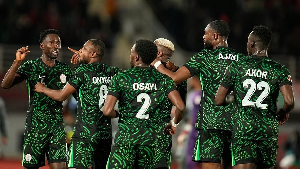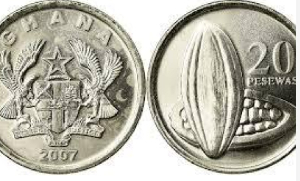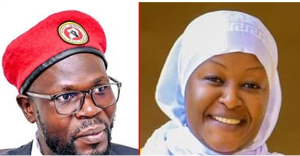Another batch of 21 Ghanaians has been deported from Nigeria, bringing the number so far deported on the orders of Nigerian two state governors to 45.
The Nigerian High Commissioner in Accra, Mohammed Musiliu Obanikoro, has however frowned upon the action, promising to wade into it immediately.
Earlier on July 14, 2011, 24 Ghanaians were arrested and deported to Ghana - unable to pick their belongings before the unexpected action. The batch was made up of 21 men, 2 women and a girl.
In both instances, the deportations were ordered by state governors in the most populous African country which runs a federal system in which foreign affairs, defence and internal affairs are the preserves of the federal government in Abuja.
Details available to Daily Guide suggest that the latest bout of deportation saw the rounding up of 21 persons upon the orders of the Ondo State Governor, Olusegun Mimiko, in Western Nigeria.
The deportees were arrested on July 16, 2011 and kept in confinement without allowing them to pick their belongings until their final forced exit from Nigeria a few days ago.
With the thought of leaving their belongings behind pinching them, the deportees were taken to the Nigeria/Benin border by road and handed over to the immigration authorities of that country.
The Beninois authorities then moved the deportees to their country’s border with Togo, Hilla Kondji, from where they were transported to the Togo/Ghana border of Aflao and handed over to Ghanaian authorities.
Daily Guide learnt that the deportees at this point were handed over to National Disaster Management Organisation (NADMO) in the Ketu North District of the Volta Region.
Here, they were registered and taken through the standard procedure for deportees. It has emerged that no reason was proffered for their arrest and subsequent deportation to Ghana.
Ironically, more and more Nigerians, most of them without valid travel documents, continue to troop to Ghana for the purpose of mostly sojourning here.
Regarding the earlier deportation, Daily Guide was told that the Kwara State Governor who ordered the arrests did not also give any reason for the action he ordered in the state capital of Ilorin.
The treatment meted out to this group of Ghanaians was no different from the one they received at the hands of the Ondo State government in Akure, the state capital.
Observers of the relations between the two countries are apprehensive about the backlash of the Nigerian action which is in total contravention of ECOWAS Protocol.
In the 80s, the two countries were engaged in a reprisal action which saw each of them deporting aliens to their countries of origin.
Nigeria had also undertaken a mass deportation of Ghanaians from that country in a spree which earned the notorious mantra of ‘Ghana Must Go’. So many years after the unfortunate diplomatic incident, the mantra has refused to go because a bag has been named after it. The bag was the most preferred by Ghanaians returning home from Nigeria at the time.
It was Nigeria which started the deportation after demanding that every Ghanaian entering Nigeria should provide proof of possessing an amount of $50. Failure to provide led to outright deportation.
Ghana retaliated by also making similar demands, leading to the two countries engaging in a messy diplomatic row.
The authorities of the two countries sought an amicable solution to the diplomatic row which saw the withdrawal of the worrying trend eventually.
Until now, the ECOWAS protocol has held sway with citizens of each country, availing themselves of the opportunities thereof.
Ghana is home to third generation Nigerians completely assimilated into the mainstream citizenship of the country.
Descendants of Captain Glover’s 600 Hausa soldiers deployed to the then Gold Coast formed the Gold Coast Constabulary, a nucleus of today’s Ghana Armed Forces and police service.
Most of them married here after disbandment and have been finely assimilated into the country. It is therefore absurd when the two countries engage in such nasty diplomatic reprisals.
Ghanaian authorities might not want to go the way of their Nigerian counterparts but if they do, the repercussions could shake the foundation of ECOWAS.
Both countries, previously part of the British colony, spent same currency under the British West African monetary system.
The Nigerian High Commissioner to Ghana, Alhaji Musiliu Obanikoro, in an interview with Daily Guide, condemned the action of the governors, describing it as the work of overzealous public officials.
He promised wading into it with the view to reviewing the trend. “If it really happened, we would take action to remedy the situation. Ghana and Nigeria cannot afford to return to the old days. Our relations have improved so much that we cannot afford to allow a few officials to cause friction between us. I would take action. I condemn it in totality and would get to the bottom of it,” he said.
Regarding the suspicion that the governors were responding to the danger posed by the extreme Islamic grouping, Boko Haram, he said Ghana does not have Islamic extremists.
General News of Monday, 25 July 2011
Source: Daily Guide












